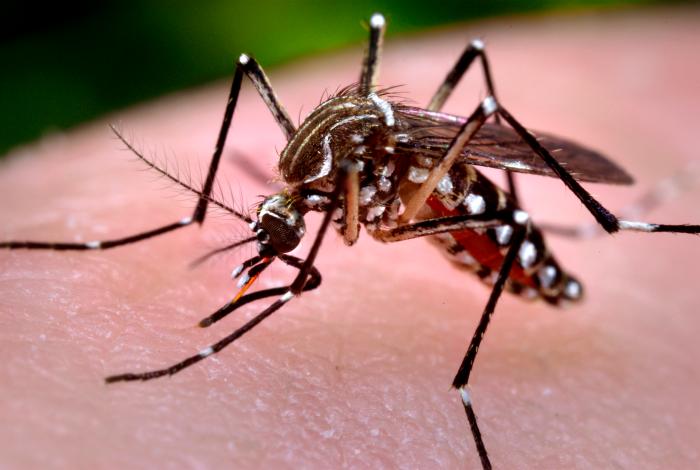Dengue fever is a viral disease, transmitted by a bite from the mosquito Aedes aegypti which has previously bitten an infected person…
How Does It Spread?
Dengue fever is only transmitted by the Aedes aegypti mosquito. It is a small mosquito with distinctly black and white banded legs. It takes 7-13 days for an egg laid by a female to change from a wriggler to an adult mosquito. The adult seldom lives longer than 1 month.
Symptoms
The typical symptoms of dengue fever are: -sudden onset of fever, lasting 3-7 days -intense headache and pain behind the eyes -muscle and joint pain (eg; ankles, knees, elbows) -loss of appetite, vomiting and diarrhoea -skin rash, and -minor bleeding (eg; from the nose or gums). Recovery from the fever may be associated with prolonged fatigue and depression, which varies in length from person to person. Dengue fever in extreme cases, can result in excessive bleeding and may be fatal…
Blood test for dengue
A common test which is done is called the blood count. This count will give the doctor a measurement of the platelets within the blood. Platelets are a component of the blood that is necessary for the blood to clot. Without platelets patients can bleed and bleed. A normal platelet count is between 150 -450. A patient with a platelet count less than 100 will probably need admission to hospital or close medical supervision depending on circumstances.
In addition dengue patients may have a reduced white cell count. This is in contrast with a bacterial infection where white cells are increased. Remember dengue is a viral infection not a bacterial infection. Hence antibiotics will not cure dengue. The most accurate test for dengue is called the Dengue IgM. This tests for an antibody called IgM. An antibody is a marker of an infection because it is produced by the immune system to combat the infection. A positive dengue IgM, means that the patient has been infected but does not give any clue as to the severity or how long he or she will remain ill.
Immunity
There are four related types of the virus causing dengue fever world wide. If a person is infected by a particular type, they will have a long term (not always lifetime) immunity to that type. However, that does not provide immunity to the other three types of virus. If a person has dengue fever more than once, they are more likely to develop severe bleeding complications.
Treatment
There is no medical cure for dengue fever and there are no vaccines to provide immunity. Medical treatment is aimed at easing pain. There is no specific treatment available. Intravenous fluids and oxygen therapy are often used for patients who experience shock during their illness.
Dengue fever is characterized by fever, and joint aches, which may be severe, eye pain, flushing. There is usually a typical rash, and in severe cases where haemorrhagic fever develops there can be bleeding into the skin, eyes, gums and internal organs.
In most cases of dengue fever, the person will survive without any complications. This is because the body is capable of fighting the virus and hence will cure itself over the course of one to two weeks. Most medications prescribed are to relieve symptoms and are not cures. There is no specific treatment for the disease: supportive treatment with anti-fever drugs and possibly blood and platelet transfusions are all that is needed.





